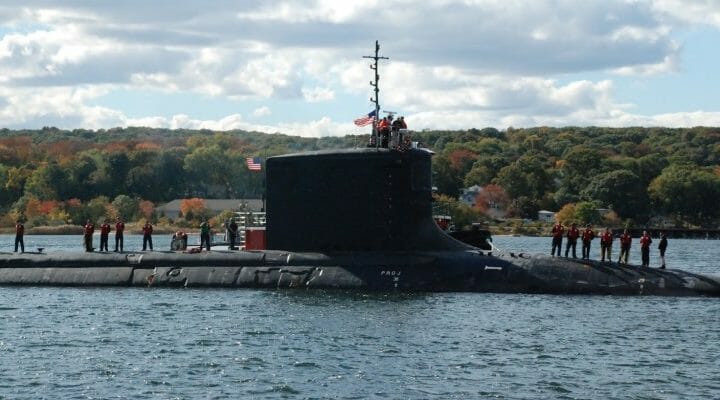China’s relentless onslaught toward acquiring access to the United States’ defense and intelligence sectors is unrelenting. If one was to look at their effort from the 10,000 foot perspective, one would liken it to that of an ant colony at work. Coming from 360 degrees, all moving individually and in unison, recruitment of sources and penetrations of networks. The compromise of the U.S. Navy’s advanced, albeit unclassified, submarine technologies by compromising the network of a so far unidentified defense contractor is just the latest example.
The fact that this piece of cyber espionage was discovered is the good news. The bad news is that it was discovered after the fact and not stopped when the attack and intrusion occurred.
Navy spokespersons are advising media there are “measures in place that require companies to notify the government when a cyber incident has occurred that has actual or potential adverse effects on their networks that contain controlled unclassified information.”
What did china steal?
The contractor has identified 614 gigabytes of material associated with the “Sea Dragon” project, as well as “signals and sensor data.” In addition, information relating to “cryptographic systems and the Navy submarine development’s electronic warfare library.”
Ouch.
The Sea Dragon project, is described as a special Pentagon office in existence since 2012. The project is charged with adapting U.S. military technologies to new applications, and specifically introducing offensive capabilities.
How was it lost?
The information was lost via a cyber hack. The Navy has declined to provide specifics. The Washington Post, who broke the story, advises that they are withholding this information at the request of the Navy as it “could harm national security.”
What’s the take away?
While the above may have been “unclassified” there is no doubt to even the most casual reader that the information is sensitive and would provide the People’s Liberation Navy a leg up on U.S. submarine strategy and tactics. A timely acquisition by China given their double-down on weaponizing the shoals in the South China Sea, where the a B-52 recently did a fly-by, much to China’s displeasure, and where the U.S. Navy is regularly exercising their right to the sea.
It appears that Secretary of Defense James Mattis was correct to “uninvite” China from the multinational exercise this summer.
As we noted in our piece just last week when we discussed the indictment of former DIA employee Ron Rockwelll Hansen, China is targeting defense contractors. Let us hope the Navy is sharing the methodology used with the entire NISPOM community so that entities entrusted with sensitive information may bolster their defenses and learn how to recognize the next attack from China.




